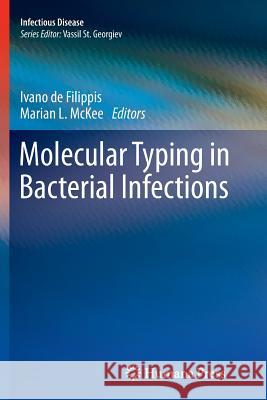Molecular Typing in Bacterial Infections » książka
Molecular Typing in Bacterial Infections
ISBN-13: 9781627039420 / Angielski / Miękka / 2014 / 484 str.
Every year new laboratory methods are developed for the identification and classification of infectious disease agents. The number of new approaches to aid epidemiological studies of microbial pathogens is continuously growing. New biotechnology improvements have played a key role in leading to new findings in the fields of laboratory diagnostic and classification of important etiological agents. For each bacterial species, a number of different methods can be used to identify the organism and determine its possible relationship to an epidemic- or outbreak-related clone. Because of the array of different laboratory methods, it is often difficult to choose an effective low-cost method that could be used routinely in laboratories. The need to establish more sensitive methods based on molecular analysis of the microorganism genome has led many laboratories to make large investments in order to achieve results which could have been reached with minor expenses. Molecular Typing in Bacterial Infections covers common bacterial pathogenic agents, with the most effective methods for their identification and classification in the light of their specific epidemiology. The book will be a valuable resource for molecular typing of infectious diseases agents encountered in both the research and hospital clinical lab settings, as well as culture collections. Each chapter provides an overview of molecular approaches to typing bacterial pathogens. Part I gives a general overview of typing methods used in the traditional microbiology laboratory in comparison to molecular methods of epidemiology. In Part II, the relative strengths and weaknesses of the different methods applicable to the specific agents of infectious diseases are emphasized. Specific emphasis is placed on recent changes and updates in molecular typing.











